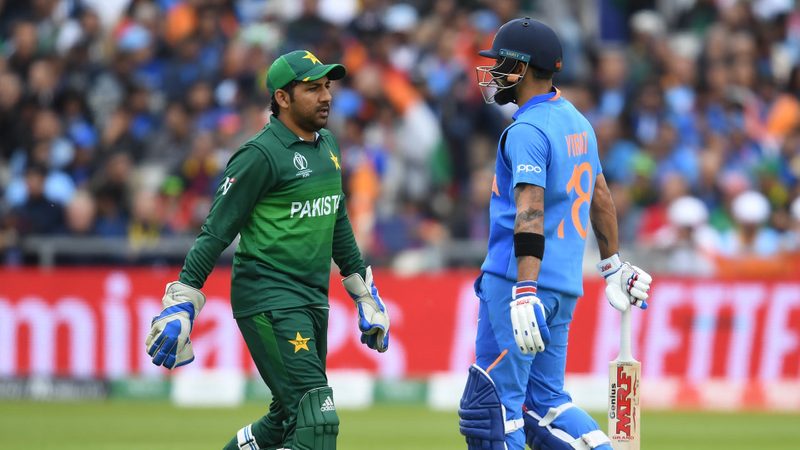
The tag for Pakistan of being the most whimsical side among the lot was once again manifested in Manchester on Sunday. Coming on the back of an unwanted 0-6 winless record against India at the World Cup, the winners of the 1992 edition were once again outpowered by Virat Kohli’s men from all fronts.
Some say their doom began right from the time Sarfaraz Ahmed won the toss and decided to bowl, thus somewhat ignoring, the title-winning captain and the current Prime Minister of Pakistan, Imran Khan’s call on Twitter. Well, anyway, as Kohli mentioned he would have elected to bowl as well had he had won the toss, those donning the green jersey had a sudden wave of optimism running through their veins.
4/5 1. In order ro have a winning offensive strategy Sarfaraz must go in with specialist batsmen and bowlers because "Raillu Kattas" rarely perform under pressure - especially the intense kind that will be generated today. 2. Unless pitch is damp, Sarfaraz must win the toss & bat
— Imran Khan (@ImranKhanPTI) June 16, 2019
The pitch sure had a bit of moisture given the rain gods weren’t particularly keen on seeing the happy faces on Saturday. And from then on, it was all about how well the seamers went about troubling the batting line-up the following day, at least in the first innings.
Boasting the likes of Mohammad Amir and Hasan Ali in their roster, Pakistan were well and truly expected to bring the much-needed brouhaha in the Indian camp. And while Rohit Sharma and KL Rahul read the latter, Amir seemed almost unplayable during his first spell. But what he lacked were the early wickets that Pakistan were desperately chasing. It was not that he lacked the mentality whatsoever, but the line and length he opted wasn’t really the kind of approach that is usually meant for better results. Rather than going straight down the line, his length seemed wayward and the Indian openers reacted to it with utter composure.
The perfect testament to the aforementioned fact remains the certitude that there wasn’t even a single appeal of LBW in 20 overs.
For instance, Rohit — who usually takes his time on the field before going berserk — was afforded comfortable room early on, on the back of which he accelerated his innings to his 24th ODI century.
And then there was this curse of substandard fielding that eventually proved out to be a clincher for India. Rohit, whose luck has been favouring him big time in the World Cup, was handed two early lifelines. By the 10th over, a miscommunication between Rahul and Rohit saw the latter charging back for the second from the batting end only for the former to send him back to his line. All Fakhar Zaman had to do was to fire his throw towards Sarfaraz, but he rather ended up swopping it to the non-striker’s.
 Photo credit: Hotstar
Photo credit: HotstarAnd only an over later, it was almost a similar goof up, with Shadab Khan being at the receiving end.
 Photo credit: Hotstar
Photo credit: HotstarIndia, on their part, responded firmly and posted a giant total on the back of Rohit’s ton, and Rahul and Kohli’s half-centuries.
Pakistan, with the bat, weren’t really that constructive as well. Apart from their top three batsmen, who happen to be their only guiding light, the entire batting order crumbled to an extent that they lost four wickets for 12 runs. Unlike the Indian order, who were disciplined in their strike rotation, Pakistan wasn’t making any point. The likes of Fakhar Zaman and Babar Azam did give India a temporary scare, but the situation eventually went down to a point that it was just about surviving till the end.
The game, for Pakistan, was primarily marred by rued opportunities coupled with the lack of transition over the period. India were always a step ahead, be it with the ball or the bat or even the fielding. It was a game full of guilty cricket, and when the Pakistanis look back at it, there will always be a ‘what if’ circling through their head.
But well, if history is anything to go by, these early results are only guiding Pakistan to a fortunate destiny. During their 1992 World Cup winning campaign, Imran Khan’s men had lost three, won one and were at the receiving end of an abandoned game after five fixtures; something which ironically identical this year.
Feature image courtesy: AFP / Dibyangshu Sarkar



























